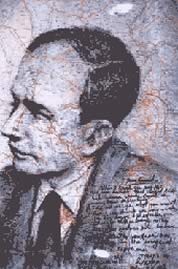The Holocaust of the Jewish People was an exceptional event in human history. Although humanity has been witness, on more than one occasion, to acts of murder and genocide, never has it been subjected to something resembling the Jewish Holocaust. A systematic, rational, industrial plan, its objective was to eliminate completely an entire nation.

Jewish culture, the cradle of Western civilization, ought to have disappeared alongside the people who had embraced it for thousands of years. This programme of extermination, so meticulously implemented, was carried out by one of the most cultured nations the world has ever known. Human history has never been witness to a similar event. The Holocaust was an exception. There has never been anything like it.
In the context of this exceptional historical event exceptional individuals emerged. Challenging the whole machinery of Germany and its allies, they were prepared to risk their own lives in order to save the lives of Jews. The mere fact that a Gentile rendered his or her assistance to a Jew so as to escape death would have signified for that Gentile a similar destiny as that of the Jew. Nevertheless, individuals, of different nationalities, of diverse social backgrounds, gave shelter, whether directly or indirectly, to Jews who, thanks to them, remained alive. The Righteous Gentile, as the non-Jew who was ready to risk his or her life in order to save the lives of Jews is known, is a unique phenomenon within a unique event in History. They were only a few.
Had there been many of them perhaps we would not be lamenting the death of six million Jews. But, thanks to these few, humanity has not completely lost the shadow of its dignity. Thanks to them, human history can still cling to the hope that evil can be overcome – if one only tries. And to have tried then, under the conditions of the Holocaust, required a level of courage and heroism which very few of us possess.
Among these exceptional individuals someone emerged who, in a way, became the exception of the exception. Raoul Wallenberg. A member of a well-known, wealthy Swedish family, Wallenberg had nothing awaiting him in the continental Europe of World War II. In the comfort of the Sweden of that time, Wallenberg decided, however, to accept a United States initiative and go, as a diplomat, to Budapest so as to study what could be done for the Jews of that city who, very soon, would have been sent to Nazi concentration camps.
Challenging the entire machinery of Germany and its Hungarian allies, employing his imagination as an offensive weapon, Wallenberg resolved to do the impossible. With the help of people, some of them diplomats, of good will, Wallenberg demonstrated that human courage has no limits. Through a process of persuasion, threats and an unmatched dose of diplomatic creativity, this young 32 year old Swede managed to save the lives of tens of thousands of Hungarian Jews. His heroism was crowned by tragedy. Although the Germans and their Hungarian allies endeavoured to cause an accidental death to Wallenberg, he survived this ordeal in order to be subsequently arrested by the Soviet troops, who had just liberated Budapest, never to be seen alive again. Wallenberg is, then, a hero without a grave.
* Yoav Tenembaum is a Member of the Executive Board – The International Raoul Wallenberg Foundation.
